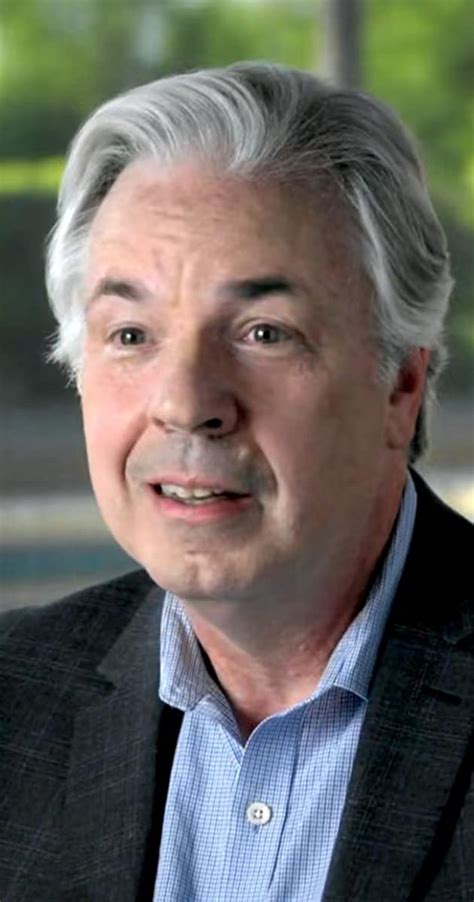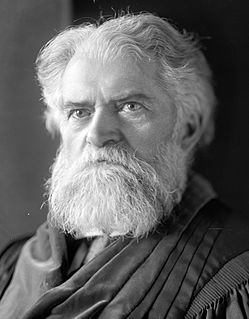Цитата Сэмюэля Джонсона
Если бы адвокаты не предпринимали никаких действий до тех пор, пока не были уверены, что они справедливы, человек мог бы быть полностью исключен из судебного разбирательства по его иску, хотя, если бы он был рассмотрен в судебном порядке, его иск мог бы быть признан очень справедливым.
Связанные цитаты
В лагерях беженцев по всему миру я встречал пропавших без вести. Они все еще ходили, но потеряли так много, что не могли претендовать на какую-либо личность. Другие, которых я встречал, нашли, кем они были на самом деле, и обычно они находили это через служение другим. Они стали учителями, когда не было ни школы, ни книг, ни карандашей.
Как вы можете заявлять о непогрешимости и заявлять, что в этих 114 ударах [беспилотников] была только одна ошибка — погиб один человек, который был гражданским, — и в то же время говорить: «Ну, мы действительно не знаем, сколько людей были убиты или кем они были, но мы знаем, что они не были гражданскими лицами? Я не знаю, как ты можешь это сделать.
Так что, несмотря на то, что мы могли произносить слова в непосредственной близости друг от друга, это никогда не могло перерасти во что-то, что можно было бы назвать разговором. Мы как будто говорили на разных языках. Если бы Далай-лама был на смертном одре и джазовый музыкант Эрик Долфи попытался объяснить ему важность выбора моторного масла в соответствии с изменениями в звуке бас-кларнета, этот обмен мог бы быть более полезным и эффективным, чем мои беседы с Нобору Ватаей.
Ибо единственный способ, которым можно говорить ни о чем, — это говорить о нем, как если бы он был чем-то, точно так же, как единственный способ, которым можно говорить о Боге, — это говорить о нем, как если бы он был человеком, а он, конечно, таковым и был. смысл, на какое-то время, и поскольку единственный способ, которым можно говорить о человеке, даже наши антропологи поняли это, состоит в том, чтобы говорить о нем, как если бы он был термитом.
Первый вопрос, который ей задали, был «Чем ты занимаешься?». как будто этого было достаточно, чтобы определить вас. Никто никогда не спрашивал тебя, кто ты на самом деле, потому что это изменилось. Вы можете быть судьей, матерью или мечтателем. Вы можете быть одиночкой, мечтателем или пессимистом. Вы можете быть жертвой, а можете быть хулиганом. Вы можете быть родителем, а также ребенком. Вы можете удивиться сегодня и исцелиться на следующий день.
Годы Великой депрессии были прекрасным временем для экономистов, потому что люди, не знающие, что можно сделать или что следует сделать, всегда предполагали, что, возможно, ответ есть у экономиста. Если бы вы были просто адвокатом в Вашингтоне, вы были бы никем. Но если бы вы были экономистом, вы могли бы знать ответ.
Я понимаю, — сказала мисс Эмили, — что может показаться, что вы просто пешки в игре. На это, конечно, можно смотреть так. Но подумайте об этом. Вы были удачливыми пешками. Был определенный климат, а теперь его нет. Вы должны признать, что иногда именно так все и происходит в мире. Мнения людей, их чувства, они идут то в одну сторону, то в другую. Просто так получилось, что вы выросли на определенном этапе этого процесса». «Может быть, это просто какая-то тенденция, которая пришла и ушла», — сказал я. «Но для нас это наша жизнь.
Если я спрошу вас, кто самый известный ученый, когда-либо живший, или величайший ученый, который когда-либо жил, вы ответите либо Эйнштейн, либо Ньютон, либо что-то в этом роде, потому что их утверждения должны были применяться повсеместно. Но утверждение того, кто изучает конкретную черту эволюционного процесса, например, очень быстрое оно или очень медленное, происходит ли оно поэтапно и т. д., — это не универсальное утверждение, это довольно специализированное утверждение, и поэтому вы не можете утверждать, к большой славе и большому успеху.





































